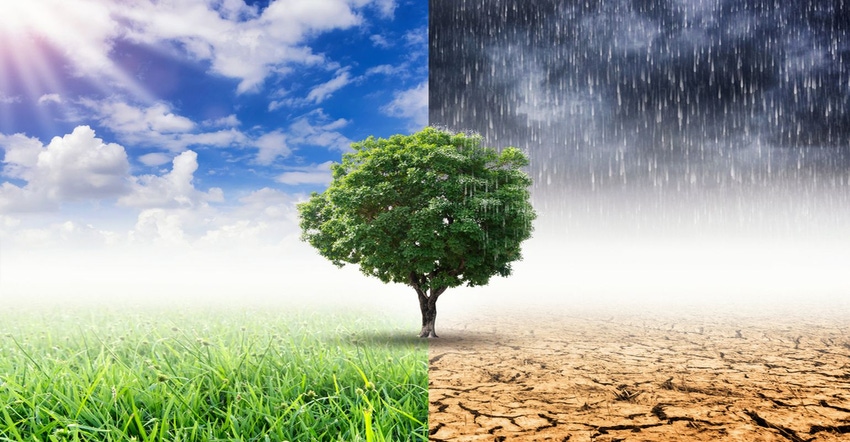Corteva Agriscience Climate Positive Challenge will provide $500,000 to farmers for scaling up innovations.

As agriculture continues to look for ways to reduce its carbon footprint, Corteva Agriscience plans to offer a financial incentive to move the needle on protecting the environment while also sustaining farmers. The agribusiness announced a $500,000 commitment to create the Corteva Agriscience Climate Positive Challenge to catalyze a movement toward climate-positive agriculture.
The challenge grants will provide financial rewards to farmers who are already advancing innovative, climate-positive practices for collaborating with local environmental groups, universities, growers or others in the agricultural value chain to help scale up the effort beyond their own acres.
“We understand the challenges farmers around the world are facing as it relates to trade, policy and weather challenges,” Corteva Agriscience chief executive officer Jim Collins said. “These reasons are our primary drivers for announcing this now: to provide incentives for those farmers that have a keen eye for scaling their practices.”
Collins first introduced the concept of climate-positive agriculture at last year’s World Food Prize. Since then, the company has had meetings with farmers and organizations representing every facet of agriculture and food production on the forefront of advancing agricultural sustainability. The discussions explored what it would take to create a carbon-negative and climate-positive agriculture industry around the world.
“Clearly, there’s a thirst and passion to collaborate and coordinate so that we can best tackle what is undoubtedly the biggest challenge of our lifetimes,” Collins said.
Corteva is already working toward creating market-driven financial incentives for farmers. The company’s subsidiary, Granular, is collaborating with Nori, the world’s leading carbon dioxide removal marketplace. The site connects buyers of carbon offsets with farmers who are applying sustainable farming practices and provides them with a viable carbon credit market that will generate revenue.
While speaking at the World Food Prize Borlaug Dialogues, Collins noted that digital technology today offers promising opportunities to deliver climate solutions. Granular offers digital alignment with the grower and accounts for all inputs, soil and water and puts real-time information in the hands of growers to understand their carbon sequestration rate.
Rattan Lal, professor of soil science at The Ohio State University, shared that in order to advance agriculture as a larger part of the solution to addressing climate change, carbon needs to become a commodity that can be sold. He believes that with the right technology, farmers can better understand their soils and offer climate change mitigation, improved water quality and biodiversity.
Lal said a carbon payment for farmers is not a subsidy or a handout. Instead, he said, “We are paying farmers for doing something they offer to do for the general public.”
Erin Fitzgerald, CEO of the U.S. Farmers & Ranchers Alliance, said consumers care about the land, air and water, and farmers represent 2-3 million people who are stewarding their acreage. “When we really step up and lead, I’m betting on people,” Fitzgerald said of farmers’ ability to take carbon out of the air and store it in soil.
“Soil is like a bank account; what you put into the account must be more than you withdraw,” Lal said. Many of the solutions for farmers lie in their soils, he explained.
“This is just the beginning,” Collins said. “There’s so much more we – and all of us working together – can do.”
About the Author(s)
You May Also Like




.png?width=300&auto=webp&quality=80&disable=upscale)
